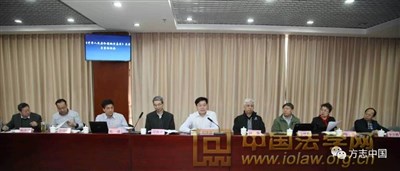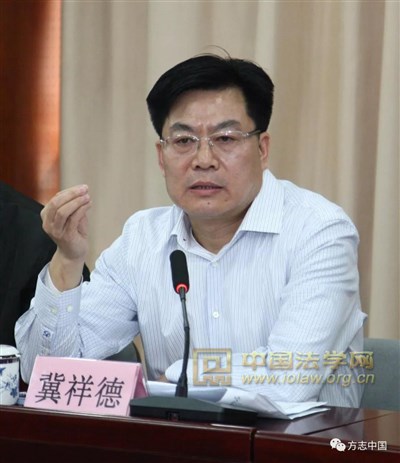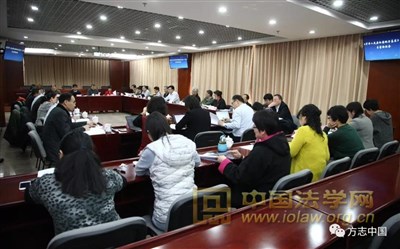
On March 20, 2018, the Expert Panel on the Drafting of the Law of the People’s Republic of China on Local Chronicleswas held in Beijing. The panel was presided over by Professor Ji Xiangde, Secretary General of the Guiding Group on Local Chronicles in China, and attended by over 40 experts, scholars, and government official from various parts of China, including five researchers from CASS Law Institute and Institute of International Law.

At the penal, Professor Qi Xiangde first gave a speech in which he thanked the experts, scholars and government officialsfor attending the panel and pointed out that the compilation of local chronicles is an important means inheriting and developing the excellent cultural tradition of the Chinese people. The 2006 Regulation on the Work of Local Chronicles marked the change of the method of the work of compilation of local chronicles from that depending on administrative orders to that based on law and has played an important role in regulating the work of local chronicles. However, with the change of situation, the Regulation can no longer meet the need of the current the work of compilation of local chronicles and a law is urgently needed to provide for the functions and activities of organs of local chronicles and to regulate their powers and obligations.
Next, Mr. Wang Lilei, an official from the Legislative Affairs Commission of the Standing Committee of the National Congress, introduced and explained the Legislative Proposal of the Standing Committee of the National People’s Congress on the drafting of a Law on Local Chronicles and the text of the Draft Law of the People’s Republic of China on Local Chronicles. He pointed out that, with the rapid development of local chronicles, an administrative regulation can no longer meet the need of the practical work in this field, and a law with higher legal effect is urgently needed in this field.

Then, the participants of the penal carried out discussion on the text of the Draft Law. They put forward valuable suggestions on the necessity, urgency, and feasibility of the legislation and professional opinions on framework, definition of concepts, selection of chapters and sections, and concrete wordings of the draft law, and exchanged opinions with the representatives of legislative organs on the legislative technique and the content of the draft law.


